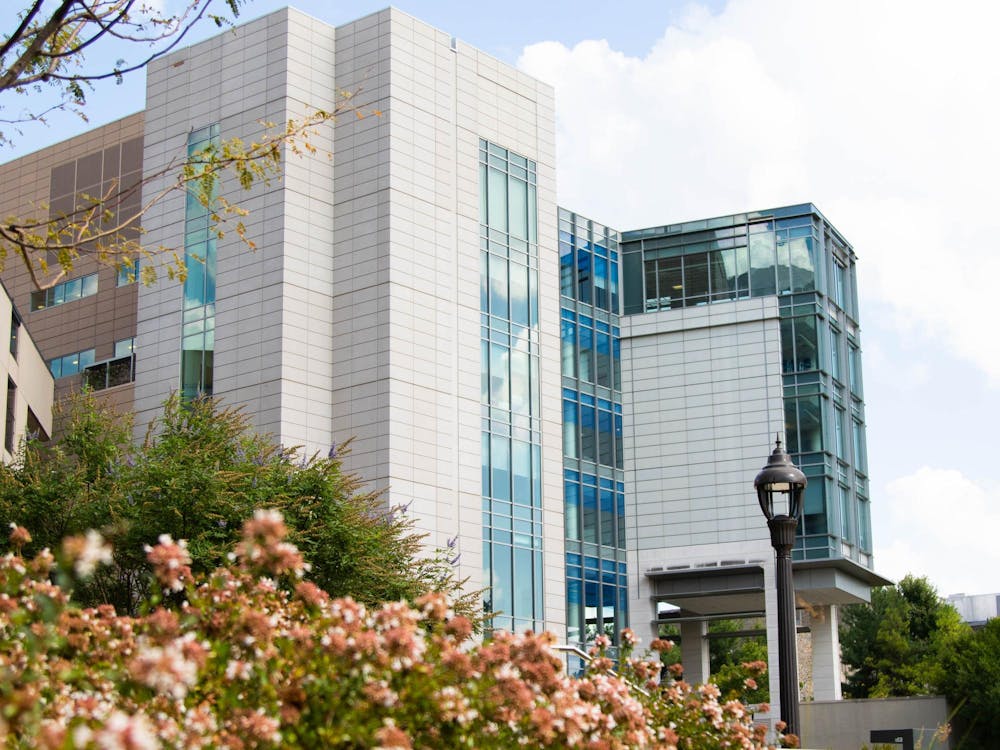The Trump administration’s recent decisions to limit communications from federal health care agencies and strip nearly $4 billion worth of funding from the National Institutes of Health have stoked concern among Duke faculty and students, who are worried that the moves will impede their research.
Despite multiple lawsuits filed by state attorneys general and a temporary block imposed by a federal judge, many grant-review meetings at the NIH were suspended for weeks, preventing the world’s largest public funder of biomedical research from spending much of its $47 billion annual budget. For many Duke researchers, this pause has already impacted the trajectory of their work.
According to a Feb. 12 email from Duke administrators, such policies are “eliminating roughly $194 million in annual research funding from NIH at Duke alone.”
Professor of Pediatrics Michael Anthony Moody emphasized that the pause on grant-review meetings has “destroyed th[e] cadence” of conducting research.
“It's really hard to plan for the future when you have no idea [when] the resources are going to be coming in,” he said. “… Nobody’s sure at all what they should be doing.”
Moody, who leads a universal influenza vaccine development project — now in its sixth year — shared that he has faced “tremendous uncertainty” over whether the project will receive NIH funding for its next round.
Donald McDonnell, Glaxo-Wellcome distinguished professor of molecular cancer biology, described this as the “most unsettling time in [his] career,” stressing that a pause on grant-review meetings is only a small component in a larger landscape of uncertainty.
“There’s uncertainty about the funds; there's uncertainty about being able to commit to students,” McDonnell said. “… I know the school is going to figure this out, but in the interim, there's a tremendous amount of anxiety among the students.”
According to McDonnell, the “trickle-down effect” of the funding cuts has disrupted various aspects of the research scene by pausing critical ongoing projects and creating challenges integrating new graduate students into labs, including those who had already been accepted.
One of Moody’s microbiology students is currently finishing up her rotation in his lab. Moody said her entire class was informed that the school has “no idea” if they will have lab positions to enter once they complete their studies, since funding remains uncertain.
Matt Collins, a fourth-year doctoral candidate in the department of pharmacology & cancer biology, noted that the policy changes are significantly impacting students' career plans.
“Many of my peers — myself included — … have had to really think hard about what career opportunities there are going to be on the back end of graduate school and training, and particularly, which skill sets and degrees are going to be of value in our scientific community,” he said.
Moody added that he believes the new policies will have a “chilling effect” on academia in the coming years, leading to a potential decline in both applications and admission to graduate programs as students “self-select” into other opportunities.
In fiscal year 2024, the University received over $580 million in funding across 1,008 awards from the NIH, with a significant portion being funds that cover indirect costs like facility maintenance, administrative needs and shared lab staffing. But with the indirect cost rate shifting from 61.5% to 15%, Duke now faces significant challenges across all research disciplines.
Duke Health did not respond to The Chronicle’s request for comment on the impact of the policy changes on University researchers and how it plans to respond to such changes in time for publication.
“If you eliminate the indirect costs, that puts a further burden either on the direct costs — we end up having to pay for things out of direct [funds] that would normally have gone to indirect [funds], which means there's less money to do the actual science — or you're pulling from … other funding sources,” Moody said. “And so it creates a situation where there's fewer resources to do the other things that the school has a mission to do.”
However, despite the ongoing challenges and uncertainty, Collins remains hopeful that the research community is equipped to navigate the evolving situation.
“At the end of the day … Ph.D. [students] are being trained … to come up with creative solutions to difficult problems — and this is the most difficult problem,” Collins said. “… The scientific community has been under attack in the past, but we are not a community that will go away quietly.”
Get The Chronicle straight to your inbox
Sign up for our weekly newsletter. Cancel at any time.

Rebecca Fan is a Trinity sophomore and a staff reporter for the news department.

